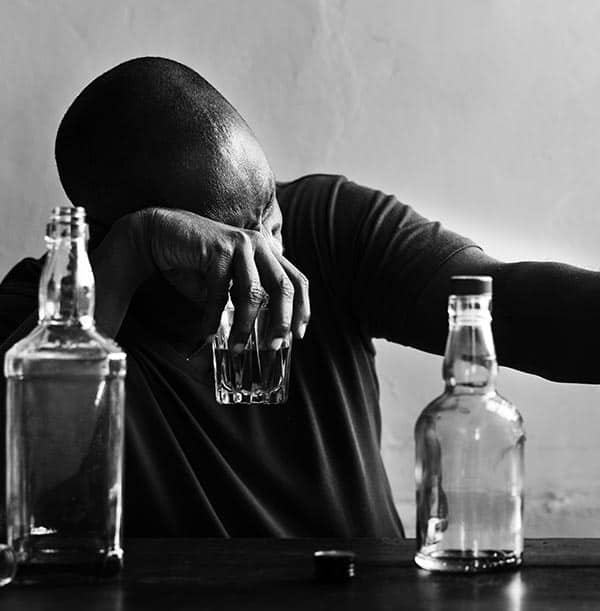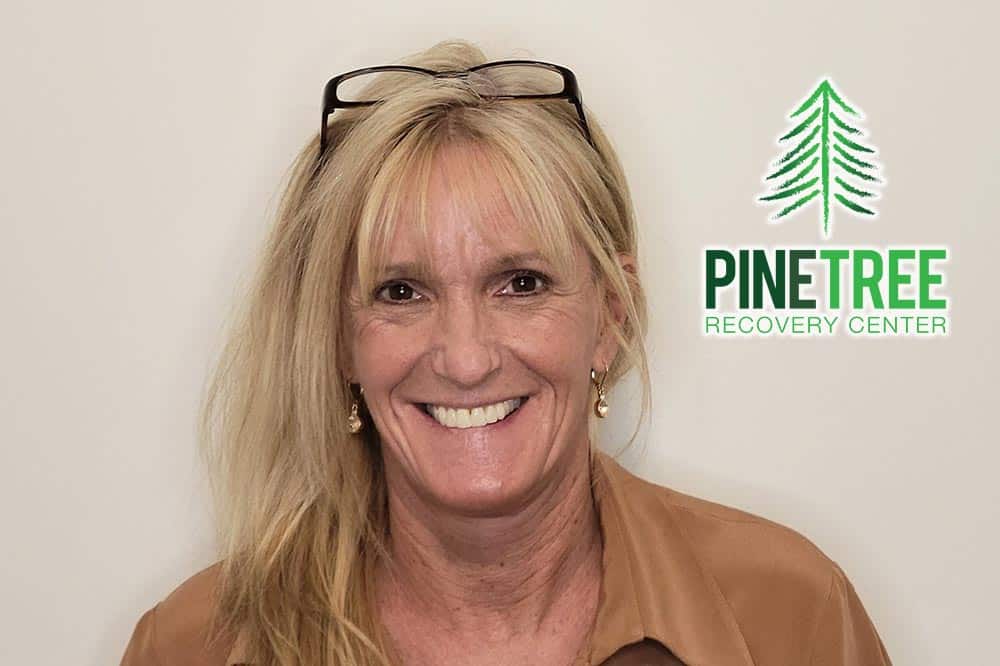Why Can’t I Stay Sober?
How to Overcome Addiction
How to Overcome Addiction
For those struggling with a substance use disorder, getting sober is likely the most challenging thing they will ever have to do. Addiction is a chronic and relapsing brain condition, meaning symptoms will get worse the longer they are left untreated and there is currently no known cure. The good news is, addiction can be adequately treated. At Pine Tree Recovery Center we have carefully developed an effective program of addiction treatment — one that begins with medically monitored detox. When it comes to the maintenance of sobriety, medical detox is an important initial step. Many people attempt to detox on their own only to be driven back to drug or alcohol use before the process is over. Not only are the physical symptoms of withdrawal difficult to cope with, but the intense drug cravings that commonly occur during very early sobriety can be difficult to manage without help. To learn more about getting and staying sober, contact us today.
Coming to Terms with a Substance Use Disorder
If you have been dealing with any degree of personal consequences as a result of your substance use, you have probably tried to quit on your own accord. Maybe you swore off your substance of choice for good, only to find yourself using again days or weeks later. Maybe you made a willful decision to switch from hard liquor to beer or wine, or only drink on the weekend. Soon the weekend crept into Thursday and Friday, and soon enough you were back to seven days. Maybe you have repeatedly promised your spouse, children or parents that you were done, and you meant it this time; but your conviction waned once again. If you are having a difficult time quitting on your own, it is not because you are weak-willed, corrupt, or prone to failure. It is probably because you have developed a diagnosable substance use disorder — one that will need to be professionally addressed in a designated addiction treatment center.
Coming to terms with a substance use disorder can be extremely difficult, partially because addiction and denial often go hand-in-hand. Not only do most people have a difficult time admitting that they can’t solve a personal problem without help, but there is science backing the refusal to acknowledge substance use has become an issue. When a person uses a chemical substance for a prolonged period of time, the chemistry of their brain physically changes. They start to crave the substance. After awhile, the brain cannot produce certain chemicals without the help of the substance, and it starts to say things like, “Hey, do you want to be happy? Do you want to feel good? Then we need to get our fix… now.” In this sense, denial almost serves a coping mechanism. People who are in the throes of addiction subconsciously utilize denial to continue engaging in drug or alcohol use. However, denial must be successfully overcome in order for long-term sobriety to be achieved.
We Are Here For You
Am I Struggling with Addiction? Signs & Symptoms
How can you tell whether or not you are suffering from a diagnosable substance use disorder? There is a list of diagnostic criteria laid out by the Diagnostic and Statistical Manual of Mental Disorders, Fifth Edition (also known as the DSM-V). If you have more than two of these criteria, there is a good chance that some degree of professional treatment has become necessary.
These criteria are as follows:
- Taking a substance in larger quantities than you meant to for longer periods of time than intended.
- Trying to quit the substance on your own but being unable to do so.
- Spending a significant amount of time obtaining the substance, using the substance, and recovering from its effects (for example, nursing a hangover for a full day after binge drinking).
- Experiencing frequent cravings for your substance of choice.
- Failing to fulfill personal responsibilities and obligations because of your drug or alcohol use.
- Experiencing issues in your interpersonal relationships as a direct consequence of your drinking or drug use (concern from family members, frequent fights with a spouse, frustrated coworkers, etc).
- Neglecting activities and hobbies you previously enjoyed.
- Engaging in more risk-taking activities as a result of your substance use (like driving while intoxicated or engaging in promiscuous sex).
- Continuing to use your substance of choice despite a worsening physical or psychological issue.
- Developing a physical tolerance, meaning more of the substance is required in order for the desired effects to be achieved.
- Experiencing withdrawal symptoms when substance use is stopped abruptly.
Our Drug & Alcohol Detox Services Include
Why Can’t I Stay Sober?
If you are having a difficult time staying sober, rest assured that you are not alone. Once a substance use disorder develops it becomes nearly impossible to successfully quit without help. The good news is, there is ample help available.

The Disease Model of Addiction
Why is it so difficult to stay sober? There are several reasons; one of the most prominent and recognized being the Disease Model of Addiction. According to Principles of Addiction Comprehensive Addictive Behaviors and Disorders, Volume 1, “In the model, addiction is defined as a chronic disease for which there is currently no medical cure. The model also views addiction as a disease with symptom progression; not only is the condition chronic and incurable, but also the symptoms progressively worsen over time. Severity of the disease is often determined by the progression of various physiological symptoms, such as tolerance and withdrawal. Symptom progression is viewed by some proponents of the disease model as continuing in a latent fashion even when a patient is abstaining, so if the patient were to return to active addiction, it is likely that a progression of symptoms (when compared to when they had abstained) would be observed almost instantaneously upon return to the addictive behaviors even if the person had abstained for a significant amount of time.”
The Disease Model explains why it is so difficult to stay sober on a biological level. However, the development of addiction often has to do with more than the building of a physical tolerance. In many cases, people begin using chemical substances in the first place because of an underlying issue.
Co-Occurring Disorders
People often turn to drugs and alcohol as a way of coping with an underlying issue. They could be attempting to self-medicate a mental illness like anxiety, depression, bipolar disorder, or post-traumatic stress disorder. They might turn to drinking as a way to cope with a high-pressure occupation; they might turn to drugs as a way to combat the symptoms associated with unresolved trauma. While turning to substance use might temporarily alleviate the symptoms of this underlying issue, it will only exacerbate symptoms in the long run — which can easily lead to a vicious cycle of struggling to get sober and repeated relapses.
Additional Risk Factors for Addiction
There are additional risk factors for addiction, and additional reasons why it can be so difficult to get sober without professional help.
These risk factors include:
- Genetic predisposition. Addiction is largely hereditary, meaning if you have family members who have struggled with substance use, you are more prone to developing a substance use disorder yourself.
- Environment. If you currently live in a chaotic, hostile, or high-stress environment, it will be difficult for you to get and stay sober. This is why entering a multi-staged treatment program is a good idea, and why committing to an extended stay in a sober living home almost always comes recommended.
- Early substance use and substance of choice. Generally speaking, people who begin using substances earlier in life have a more difficult time getting sober. Additionally, the type of substance you use determines how easy it is to get and stay sober. For example, people who struggle with marijuana use often have an easier time getting clean than people who have been using methamphetamine for years.
Ready To Begin Your Drug & Alcohol Detox?
We Offer A Safe & Effective Program
Don’t let Drug & Alcohol addiction control your life.
Call us today and let’s get you started on the path to a better you.
Which Level of Care is Right for Me?
When you admit to yourself that help has become necessary, the next step is deciding which level of care is right for you. At Pine Tree Recovery Center we have Treatment Advisors standing by to help you make this decision. We will complete an assessment over the phone and guide you in the right direction. In most cases, medical detox serves as an important initial step.

Medical Detox
Medical detox comes as a recommended first step regardless of what type of substance you were using and for how long. The symptoms associated with drug and alcohol withdrawal can be unpredictable, and can lead to life-threatening complications when left untreated. At Pine Tree Recovery Center we offer an effective medical detox in Portland, Maine, serving people of all ages and walks of life anywhere in the U.S. While you undergo withdrawal, your symptoms will be closely monitored by a team of licensed medical professionals. While in detox a personalized aftercare plan will be developed, and once you have been physically stabilized you will transition into the next appropriate level of care — which is often inpatient rehab.
Residential Rehab
Residential rehab typically lasts for between 30 and 90 days, and includes a continuation of individual and group therapy. Many residential rehabs offer a combination of medication assisted treatment, therapeutic intervention, and holistic approaches to recovery. You will learn relapse prevention techniques and begin to develop and hone a range of healthy coping mechanisms. Traditionally, residential rehab is followed by outpatient treatment and a long-term aftercare plan.
Outpatient Treatment & Aftercare
Outpatient treatment is a step-down level of care, providing more flexibility and personal freedom than an inpatient setting. You attend a comprehensive treatment program for several hours of the day and return home once the day concludes, allowing you to work part-time or take care of other personal obligations. Aftercare planning is crucial to the maintenance of long-term sobriety. Most aftercare plans include a continuation of individual therapy, involvement in a 12 Step program, and ongoing psychiatric care in the case of dual diagnosis disorders.
Begin Healing Now!
Have A Call With One Of Our Treatment Advisors
Don’t Suffer Any Longer
Contact Us Today to Begin Your Personal Recovery Journey
If you have been struggling to control your substance use with little to no success, reaching out for professional help is a good idea. At Pine Tree Recovery Center we are readily available to help you determine which level of care is right for you. The moment you contact us, either directly over the phone or through our website, you will be put in touch with one of our experienced Treatment Advisors who will walk you through our straightforward admissions process. We conduct a brief pre-assessment, which helps our medical team determine which detox methods are going to be the most beneficial for your unique case. We offer a free, no obligation insurance benefit check and arrange local transportation to our Portland, Maine detox center. To learn more or to begin your own personal journey of drug and alcohol addiction recovery, contact us today.

Reviewed for accuracy by:
Randi Bruneau
LCSW, LADC, CCS
Randi is a Licensed Clinical Social Worker and Licensed Alcohol and Drug Counselor and Supervisor who has over 20 years of experience in the field of mental health and addictions. She has worked in both clinical and administrative leadership roles and also has extensive career experience in gender specific trauma treatment, crisis intervention, structural family work and substance use disorder treatment and supervision.























